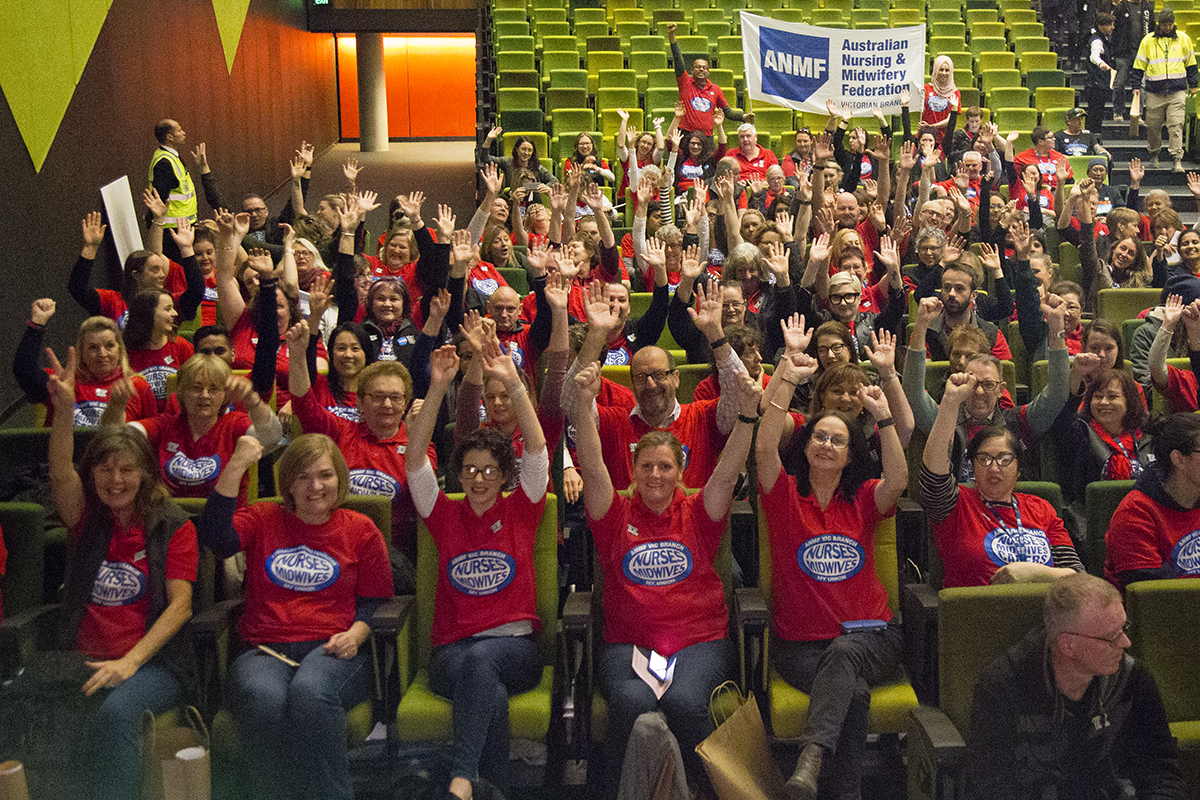
Professor Kim Foster. Photo: Chris Hopkins
In 2023, we reported on the promising results of an evidence-based trial of resilience in mental health nurses, the Promoting Resilience in Nursing (PRiN) program trial.
Conducted over five years, the world-first randomised controlled trial was designed to:
- Improve mental health nurses’ own mental health and wellbeing
- build their skills in managing stress
- improve their relationships and management of conflict
- promote their capacity for post-traumatic growth
- support them to be resilient in the face of stress at work and in their personal lives.
ANMF (Vic Branch) collaborated on the project with researchers, led by the Australian Catholic University’s Professor Kim Foster, and other institutions, universities and unions.
‘Resilience interventions can’t fix organisational stressors, but they can help people manage the inherent stresses of nursing work,’ Professor Foster has said of the need for the trial.
Trial results: a feasible and successful intervention for nurses
The trial results have now been officially published in the International Journal of Nursing Studies (volume 159, November 2024).
You can read the full paper online or download a PDF, but in short the trial participants showed improved coping self-efficacy, wellbeing, resilience, post-traumatic growth and emotional intelligence.
‘The Promoting Resilience in Nurses programme achieved the aims of promoting nurses’ efficacy to cope with stress and regulate their emotions and improving mental health and wellbeing,’ the researchers concluded. ‘The findings support the programme as a feasible and successful intervention for nurses across other settings and contexts.’
The researchers have also published the findings from the baseline/entry (T1) phase of the study, where they looked at the associations between outcomes. These findings were published in the International Journal of Mental Health Nursing volume 33, issue 5, October 2024 (read online article).
Two further papers from the trial – one on post-traumatic growth outcomes; and a qualitative paper on nurses’ experiences of trauma – will be published soon.
A summary infographic is also available.

Trial background: be more like Nelson Mandela
The project was an adaptation specifically for mental health nurses of a successful program developed more than 20 years ago at Queensland University of Technology (QUT) – and that program was inspired by Nelson Mandela!
Mandela spent 27 years in prison, in terrible circumstances, ‘and yet he emerged without any bitterness or rancour,’ QUT professor Ian Shochet, the original researcher, has explained of his inspiration. ‘So the question in my mind was: is Nelson Mandela unique? Or does that capacity for resilience reside in all of us? And the answer to that, from the research, is clearly that the capacity for resilience lies in all of us.’
A key focus of the PriN trial were two not commonly understood concepts: salutogenesis and post-traumatic growth.
A salutogenic approach is the opposite of a pathogenic one; it doesn’t look at deficits; it focuses on strengths. And just as salutogenesis is the opposite of pathogenesis, post-traumatic growth is the opposite of post-traumatic stress.
The PriN trial, which was conducted at NorthWestern Mental Health/Royal Melbourne Hospital (RMH) with 144 registered and enrolled nurses, proved so successful that even once it was officially finished RMH continued to offer the PRiN program to a further 42 staff across RMH, Western and Northern Health.
Studies such as this as are critical for supporting important interventions that offset work-related stressors, and to support the wellbeing of members in the workplace.




